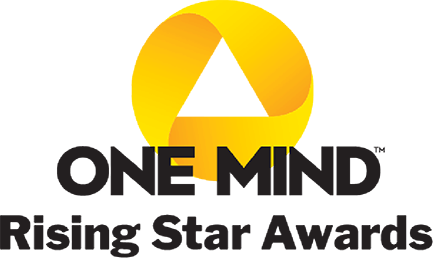
About
One Mind launched the Rising Star Awards in 2005 under the fundamental principle that cutting edge, high-risk research would allow us to find the breakthroughs to accelerate cures for the neuropsychiatric illnesses that affect 1 in 4 people worldwide. Knowing that 90% of these conditions are treatable, we wanted to create a highly impactful grant that enables the researcher to think outside of the box and pursue research that might not otherwise be federally funded. Each One Mind Rising Star Award winner receives $300,000 over a three-year period to fund research for their studies, catalyzing innovation and encouraging collaboration and data sharing.
Since 2005, One Mind has awarded 42 awards to some of the best and brightest early-career brain scientists. Since receiving their awards, these researchers have gone on to make a significant impact, both in their studies and in the brain health community as a whole. One such awardee is 2010 Rising Star Award winner, Dr. Joshua Gordon, who now serves as the Director of the National Institute of Mental Health.
One Mind is offering three (3) 2023 One Mind Rising Star Awards to advance rigorous, evidence-based scientific research with great potential to benefit people living with psychiatric disorders and the mental healthcare system.
The three awards are:
- 2023 One Mind–Ben Langford and Nicholas Hall Rising Star Award
- 2023 One Mind–Luther Family Rising Star Award
- 2023 One Mind–Russ and Stephanie Deyo Rising Star Award
One Mind is grateful for the support from the Luther, Deyo, Langford and Hall families for their generous contributions that make these awards possible.
The awardees will be selected by One Mind’s Scientific Advisory Board based on their academic credentials, research productivity, research proposal, and leadership potential. Applications are due by Thursday, June 1, 2023.
Job Features
| Job Category | Opportunity |
 Etudes Non Stop Study Non Stop
Etudes Non Stop Study Non Stop



